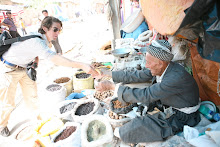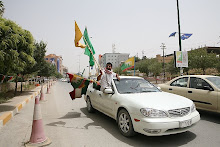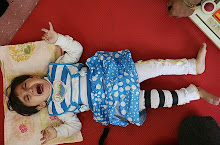It would be a mistake to argue over whether a war is about to break out between Israel and Hamas in the Gaza Strip. A war has been under way for several months, with Hamas launching Qassam rockets into Israeli territory and Israeli aircraft carrying out raids on Gaza. In point of fact, a war has been ongoing between various Palestinian entities and Israeli organizations since before the founding of the Israeli state.
When Israel was founded, its creation intersected with the fate of the British Empire, the rise of American and Soviet power and the future of the Mediterranean Basin. The Soviets first supplied weapons to Israel through Czechoslovakia, while the British armed and led Jordan's Arab Legion and underwrote the Egyptian army. Later, the French, seeking to retain their hold in the Middle East, became Israel's main foreign patron.
The moral arguments on each side have been heard and are persuasive to the side making it, and not to the other. The point is that the war has been going on for a long time, and has made less and less difference to the rest of the world, eloquent protests notwithstanding. We are not speaking here of impotent gestures and self-satisfying rages on both sides. Rather, we are speaking of geopolitical interest in the outcome of the war.
By the 1950s, the Soviets had switched sides to become the patron of Egypt and Syria, the United States formed an alliance with Turkey through NATO, and Israel became the wedge between Egypt and Syria. The Palestinians, under the Palestine Liberation Organization led by Yasser Arafat, received weapons and support from the Soviets, and Moscow used this alliance to counter Israel and U.S. activity in Western Europe.
Under these circumstances, the Israeli-Palestinian conflict intersected fundamental geopolitical interests of declining and rising empires and the struggle between rising powers for the inheritance of the European imperial system. Israel and Palestine occupied the same strategic point that the Romans had to have: the eastern edge of the Mediterranean. It was the point at which three continents met. Any Mediterranean power had to have it to anchor its position in the Mediterranean Basin. Any eastern or southern power needed it to access the other and the Mediterranean Sea.
Israel and Palestine were in many ways the tipping point of the Cold War. If Israel fell, the Soviets would control the eastern Mediterranean, given their hold on Egypt and Syria. Turkey would be isolated. If the United States held it then the Soviets would have fragments in the Eastern Mediterranean, not supporting each other and unable to give the Soviets a stable foundation. Control of the Eastern Mediterranean and bordering countries could change the balance of power not just in the region, but ultimately across the globe.
The Israeli-Palestinian conflict was only one dimension of the regional conflict but it was not a trivial dimension. Any action or reaction by either side could affect regional countries, which in turn were aligned with one of the global powers. The possibility of the Israeli-Palestinian conflict intersecting with other conflicts was very real and that gave both Israel and the Palestinians influence beyond their intrinsic significance. It was geography and geopolitics that gave weight to the conflict.
With the fall of the Soviet Union, there was only one global power and without a challenge to its power, the fate of the region fell in importance. The U.S.-jihadist wars would appear to have made it more important, inasmuch as groups like Hamas appeared to be part of the jihadist movement, but the fact was that the movement -- while able to inflict damage in limited ways -- was not a challenger for global dominance. Indeed, it was highly fragmented, quite idiosyncratic and remarkably disorganized. No matter how the United States responded in Iraq and Afghanistan, the case simply couldn't be made that the fate of the region affected the global balance as it had in the 1960s or 1970s.
As the United States withdraws from the region and Iran suffers a significant reversal in Syria, the fate of the region becomes less significant. Whether the Israelis and Palestinians fought mattered in 1970 far more than it does today. A peace process, fantasy or not, is not a major priority.
The Egyptians remain heavily influenced by the military and the military is not about to allow Gaza's problems to spill into Egypt. Their forces surrounded Gaza and went after jihadists in the Sinai in recent months. The Syrians are busy fighting each other and the Jordanian regime has never forgiven the Palestinians for their attempt to end Hashemite rule in 1970. The Iranians are struggling to hold their position in the region and the United States under U.S. President Barack Obama is not focused on foreign policy, let alone on another Israeli-Palestinian battle.
This is the reality of the current round of the Palestinian-Israeli war. It matters to the Palestinians and Israelis but not to the world, beyond those who demand a world that is just and whose definition of justice is what they believe to be just. Where the world once hung on the wars of the region, it now sees this as simply another upswing in an ongoing and unending conflict.
Today no one but the combatants and their unarmed champions care. This, however, makes it a notable point in history. It is the moment at which both sides might realize that they are on their own and, therefore, become interested in peace. But with thoughts like that we might want to pass around a petition, fantasizing that a petition constitutes action. But indifference from the world is a harsh sort of reality.














































